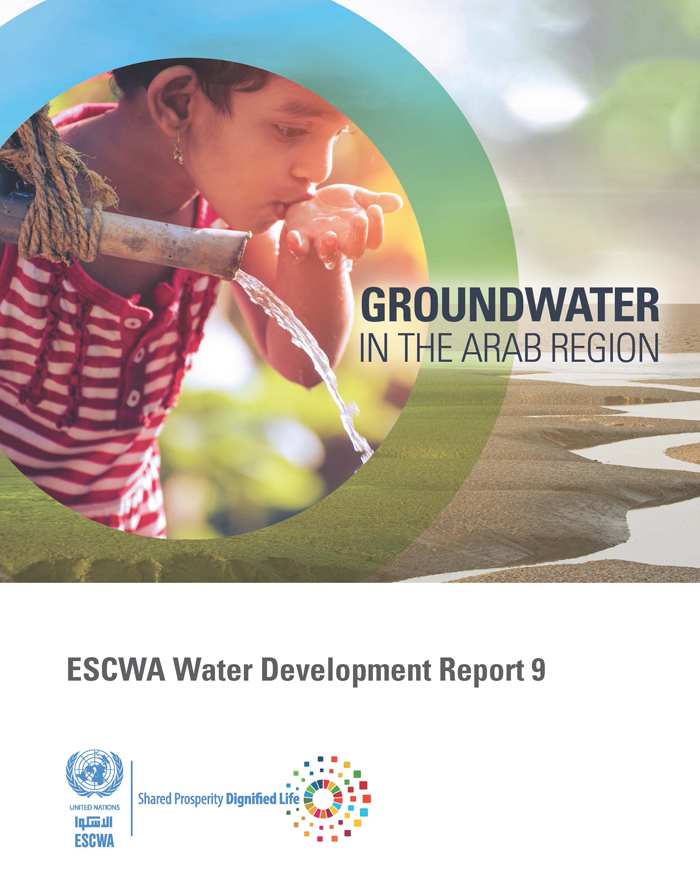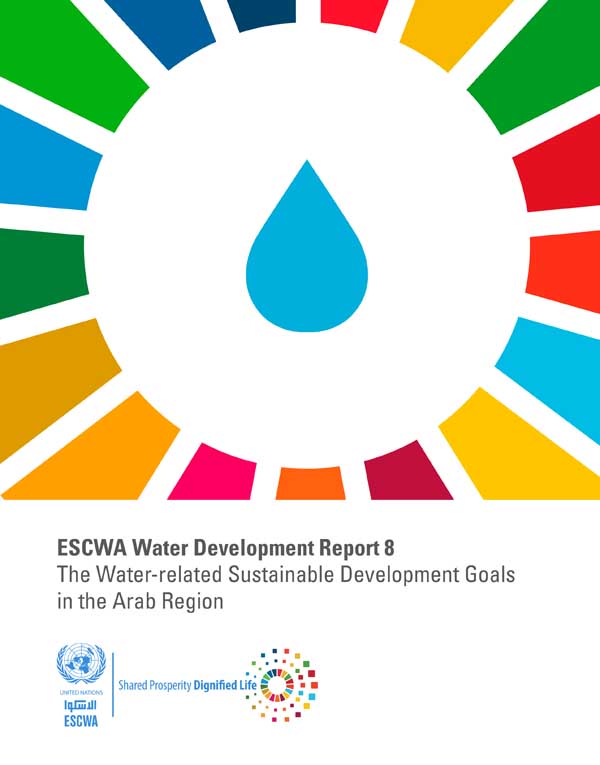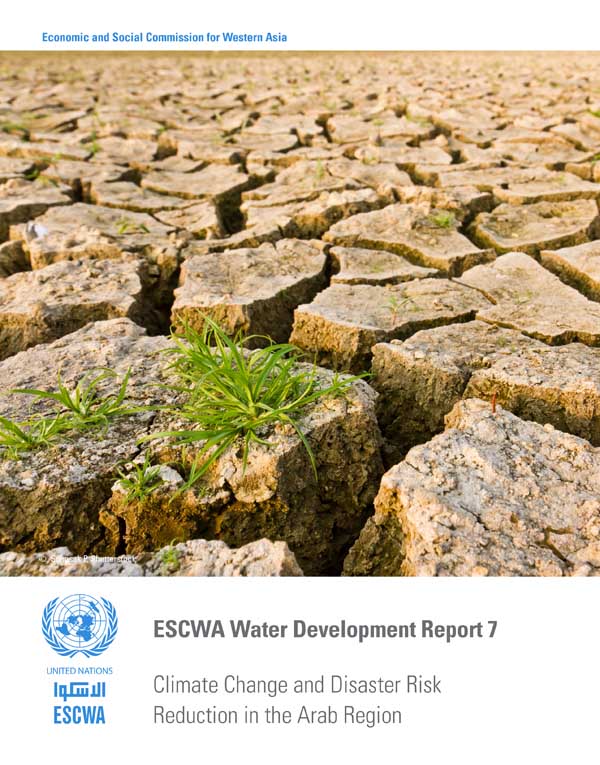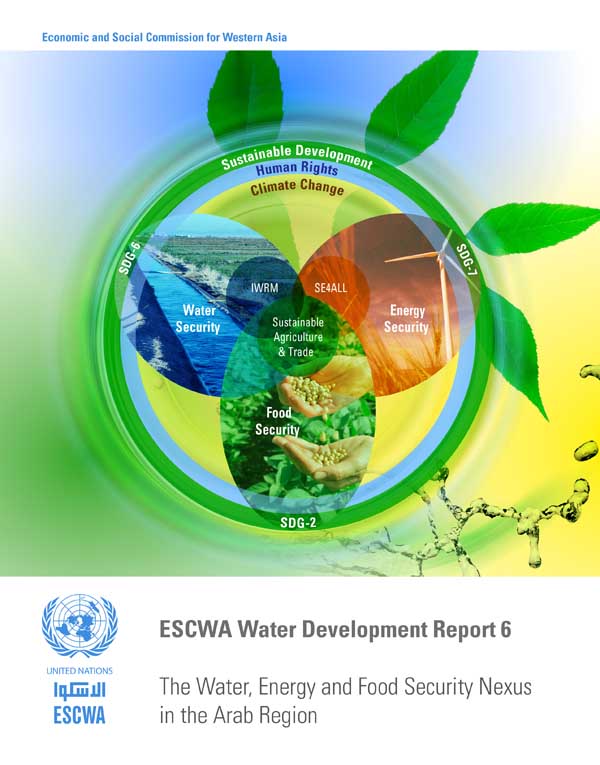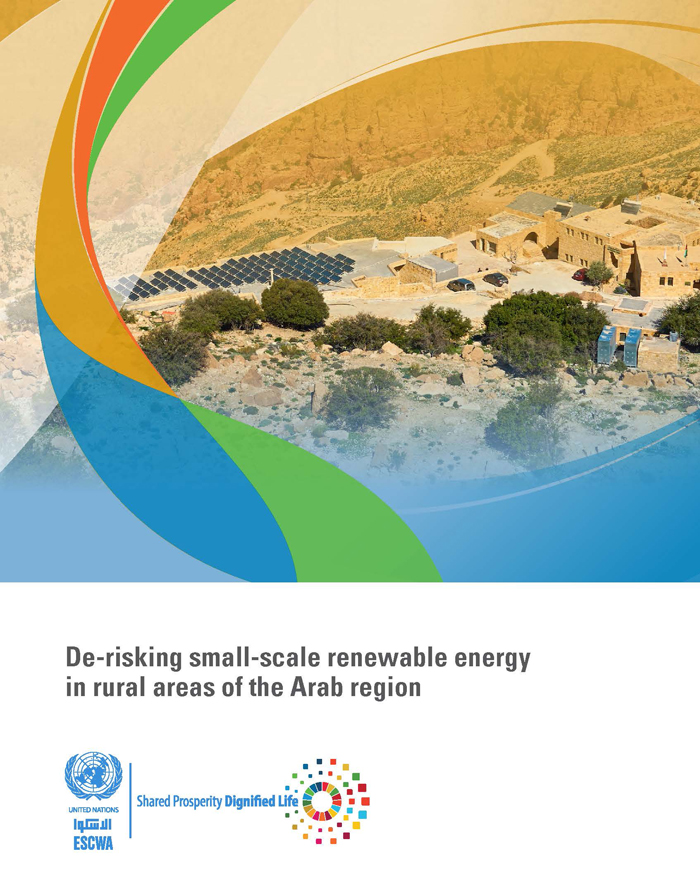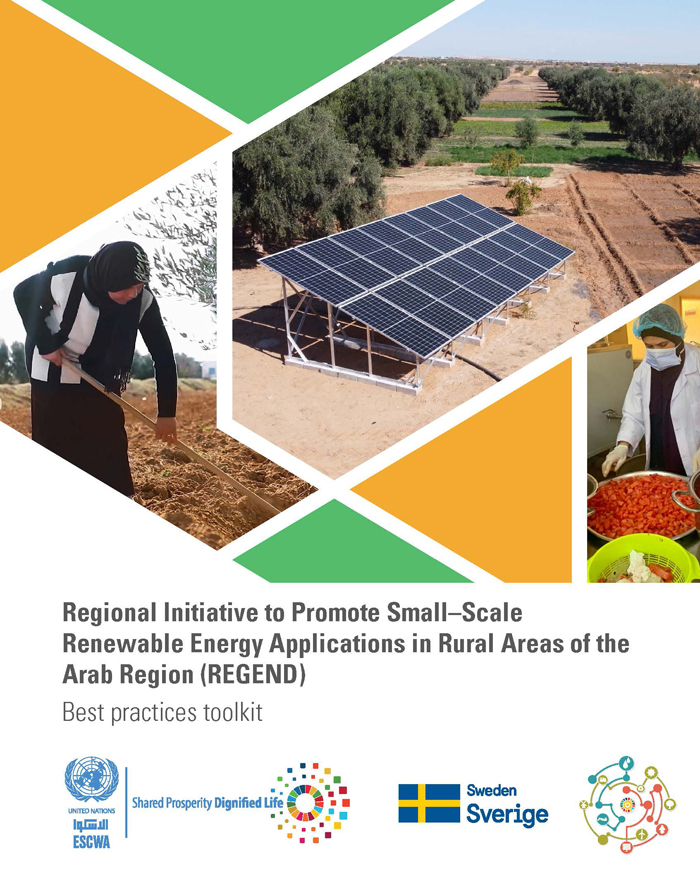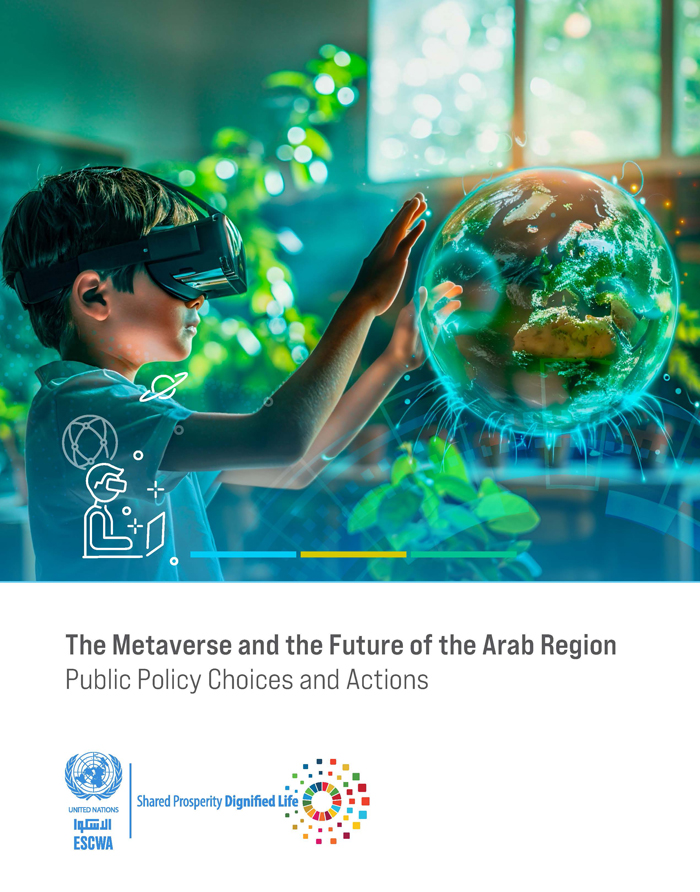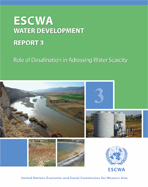
ESCWA Publication: E/ESCWA/SDPD/2009/4
Country: Kingdom of Bahrain, Republic of Iraq, Hashemite Kingdom of Jordan, State of Kuwait, Lebanese Republic, State of Palestine, State of Qatar, Kingdom of Saudi Arabia, Republic of Sudan, United Arab Emirates, Republic of Yemen
Publication Type: Reports & studies
Publication Subject: ESCWA Water Development Report
Cluster: 2030 Agenda and SDG Coordination
Focus Area: Natural resource sustainability
Initiatives: RICCAR
SDGs: Goal 6: Clean Water and Sanitation, Goal 14: Life Below Water
Keywords: Arab countries, Desalination, Water resources, Water resources development, Desalination, Energy technology, Renewable resources, Water consumption, Water supply
ESCWA Water Development Report 3: Role of Desalination in Addressing Water Scarcity
January 2009
The water supply and demand balance in most of ESCWA member countries is in serious deficit. The average share of renewable freshwater in 8 out of 14 member countries is 500 cubic meters per capita per year, or less than half of the internationally accepted water poverty threshold of 1,000 cubic meters per capita per year. Desalination, which has been practiced for more than 50 years in the ESCWA region, has emerged as the primary response to water scarcity in several countries. The region accounts for 44 per cent of the global desalination capacity, with four countries ranking among the top ten desalinating countries in the world. This report presents an overview of the water supply and demand situation in the region and demonstrates the growing importance of desalination as a core component of an integrated water resources management (IWRM) framework in water scarce countries. It provides an in-depth analysis of the direct and indirect costs associated with producing desalinated water for growing cities and populations. The report also evaluates existing desalination capacities in each country and highlights the most common desalination technologies. It concludes with recommendations on cost considerations for desalination, water management options and areas for further research.
Related content
Natural resource sustainability
,
The water supply and demand balance in most of ESCWA member countries is in serious deficit. The average share of renewable freshwater in 8 out of 14 member countries is 500 cubic meters per capita per year, or less than half of the internationally accepted water poverty threshold of 1,000 cubic meters per capita per year. Desalination, which has been practiced for more than 50 years in the ESCWA region, has emerged as the primary response to water scarcity in several countries. The region accounts for 44 per cent of the global desalination capacity, with four countries ranking among the top ten desalinating countries in the world. This report presents an overview of the water supply and demand situation in the region and demonstrates the growing importance of desalination as a core component of an integrated water resources management (IWRM) framework in water scarce countries. It provides an in-depth analysis of the direct and indirect costs associated with producing desalinated water for growing cities and populations. The report also evaluates existing desalination capacities in each country and highlights the most common desalination technologies. It concludes with recommendations on cost considerations for desalination, water management options and areas for further research.
